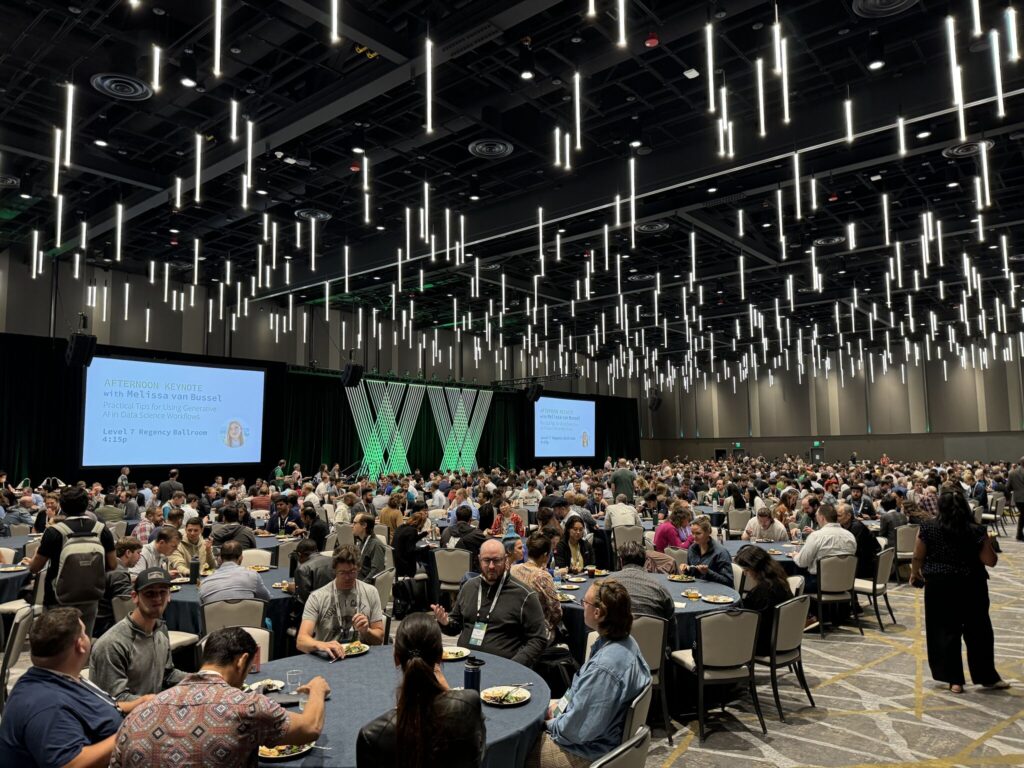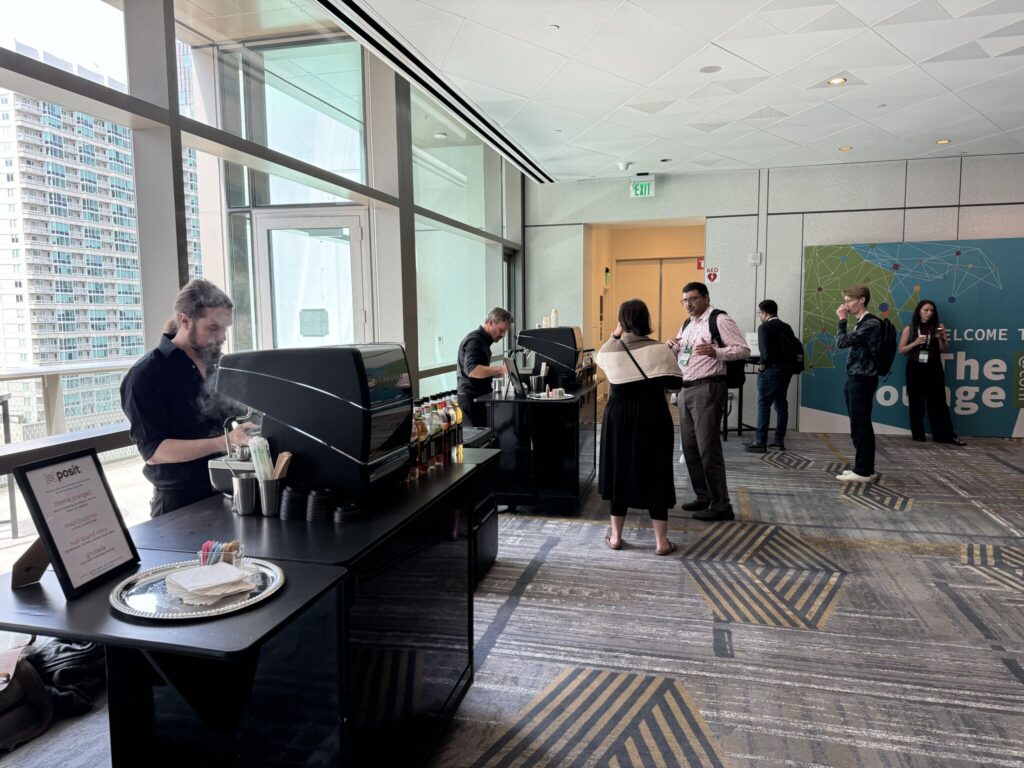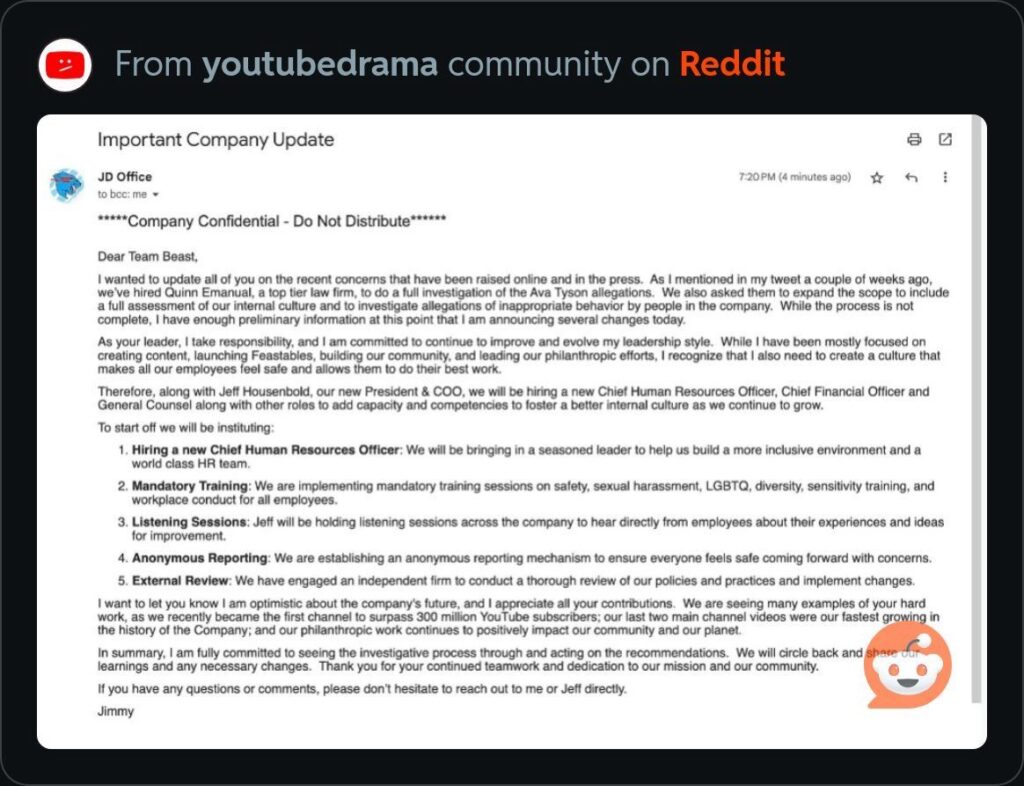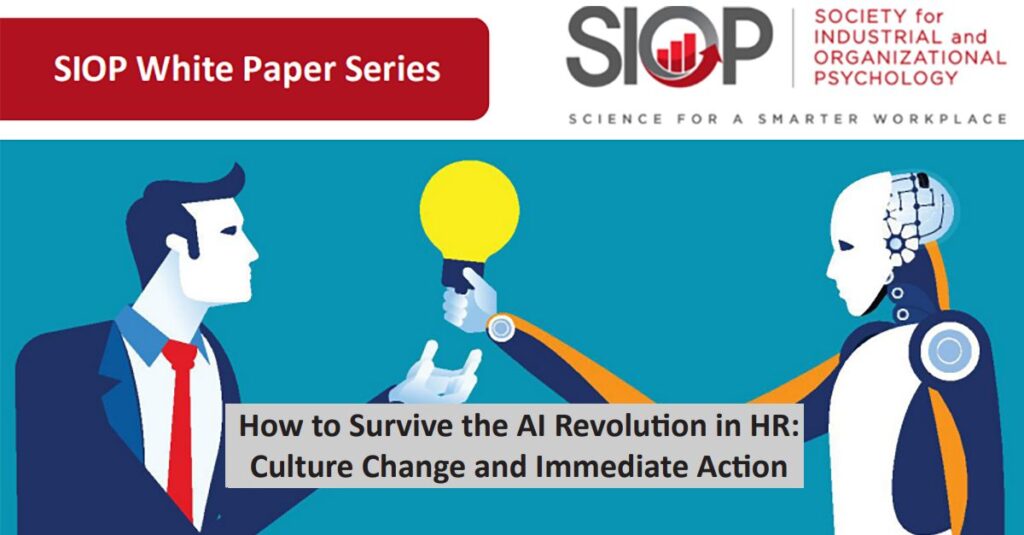
Attending APA and a tech conference (posit::conf) back to back in the same city and almost the same facilities really highlights what you get for your registration money!
At full rate, APA is priced moderately for a general professional conference: this year, $515 for three days of content. SIOP in contrast is priced a bit aggressively, at $455. People often complain about what you get for what seems like a big price tag, which essentially boils down to “access to presentations” and “food/coffee at breaks.” Coffee itself is surprisingly expensive – between $125-$450 per coffee urn, which serves abi it $50 people, so roughly $2-$9 per person for what is quite bad coffee.
So what happens if you pay more? Well that’s what tech conferences do. Posit is the company behind RStudio, which is a public benefit corporation. They have a public good mission on top of a profit motive. So they try to price their conference aggressively for that audience. What does “aggressively priced” mean in tech?
General registration is $1100. Workshops are around $600 each. And the conference is 2 days with 1-4 tracks of content depending on time of day, in contrast to SIOP with 3 days and ~22 tracks. Many tech conferences are double or triple that fee. Microsoft for example charges almost $2000 for its “community conference,” although this is a 3-day event.
What do you get for it? At posit::conf, lunch is provided – a very good salmon today with opera cakes for dessert. There are many “free” receptions daily with open bars. Hosted, carefully designed events run every evening. During the lunch hour, there are barista stations offering “free” espresso based drinks. Staff are absolutely everywhere, all ready to help. And 100% of sessions – although this is only max 4 rooms at a time – are broadcast live for a virtual audience.
It is a difficult balance from a planning perspective. Tech conferences can use this model because they know many tech companies won’t sneeze at a $2000 registration fee if content is aligned with the work they’re doing. But in IO, this would price a lot of people out, especially students. Even here, which I will reiterate is cheap for a tech conference, the student registration fee is around $600, triple the SIOP student rate. So that means SIOP conference planners make tradeoffs in the quality of experience to make the conference accessible to a broad, diverse audience of IOs.
What balance would you prefer at SIOP? Do you like the balance that’s been struck so far?


Experienced consultants will not find this story surprising: Mr. Beast, a company with over $700 million in revenue, is embroiled in a harassment scandal and is trying to address it by hiring their FIRST head of HR.
As I often seen with my grad students, a lot of people just getting into the business world assume “surely these big companies know what they’re doing” but you quickly discover that almost all corporations are reactive – someone had a good idea once upon a time that made some money, and ever since then, they’ve been in an unending scramble to keep the company alive and out of trouble.
In this leaked email from Mr Beast himself, you can see related brilliant insights like “maybe we should train people” and “maybe independent outside experts could help.” I do appreciate that Mr Beast didn’t start his YouTube channel to become a manager, but founder responsibilities change a lot when you start to make millions.
On the bright side, this sort of practice keeps my AI consultancy in business, as AI companies trying to work in talent management keep discovering that there are laws about what they’re doing or get sales-blocked by internal IOs asking for tech reports or at least “evidence,” and suddenly they need some expert advice or risk losing massive customer accounts.
But geez… even so, I do wish for a little more proactivity within these companies, which could reduce the pure chaos that this creates for the people working there, just trying to make a living.

I’m excited to announce the release of my action-oriented SIOP white paper coauthored with Sara Gutierrez, “How to Survive the AI Revolution in HR: Culture Change and Immediate Action.”
In this guide, Sara and I explore current and emerging AI technologies at their intersection with HR and I-O psychology. We discuss critical concerns and offer practical recommendations to help HR professionals navigate the rapidly evolving landscape.
Our white paper covers:
• A summary of the current state of AI in HR, highlighting 8 key concerns.
• An overview of 7 HR domains where AI is likely to trigger significant changes, with multiple examples.
• 5 actionable recommendations to ensure HR and I-O professionals stay ahead.
The full paper (freely available via the link) gives the details, but the key recommendations are:
1) Constant upskilling: HR needs to put an effort into constantly upskilling decision-makers about AI. A little training isn’t going to cut it anymore. You need your decision-makers to develop AI fluency.
2) Cross-functional collaboration: HR needs to collaborate across functional groups to manage AI initiatives. Calling up a vendor, buying a product, and hoping for the best is not going to get you what you want out of AI. You need internal subject matter experts.
3) Change management: HR needs to engage in effective change management. This is not historically a strong area for HR! We characterize this as a culture shift. HR needs to learn to ADAPT.
4) Embrace AI’s potential as a neutral collaborator: HR needs to understand that AI is morally neutral. It can be used for good or evil. More worrying, it’s very easy to unintentionally contribute to evil! HR needs to listen to employees, to understand how they are experimenting with AI, and LISTEN to them in pursuit of meaningful change.
5) Ethical AI: HR needs to actively pursue ethical use of AI. There are no easy answers. There are hundreds of “AI ethics frameworks” out there, and most likely only a few of them might be a good fit for your organization. You need to work out your own values and STICK TO THEM. And most importantly, do not immediately choose the “remove all humans from this process” option, no matter what kind of cost savings it seems to promise!
If HR and I-O professionals do not take more of a lead, the push will be made by process optimization engineers, who often prioritize short-term profits over long-term organizational health. As front-line defenders of both organizational success and employee well-being, we’re the front line! Don’t let it happen! The Society for Industrial and Organizational Psychology (SIOP) could be humanity’s last line of defense (at least in the workplace)!!Ac